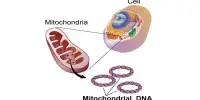Scientists discovered an essential way to help a person survive some types of acute myeloid leukemia and thus provide a treatment option for patients. Researchers at the Wellcome Sanger Institute have discovered that a genetic mutation is linked to a poor prognosis in blood cancer.
Researchers have discovered a vulnerability in some cases of acute myeloid leukaemia that could be used for targeted treatment of these cancers with a poor prognosis. In mice and human cell lines, researchers from the Wellcome Sanger Institute discovered that a specific genetic mutation associated with a poor prognosis in blood cancer is involved in the disease’s development when combined with other mutations.
The study, published in Nature Communications, sheds more light on how a loss-of-function mutation in the CUX1 gene contributes to the development and survival of acute myeloid leukemia. The findings imply that targeting a pathway required for these cancer cells to grow could lead to new targeted therapies for some patients.
Targeting a pathway that is essential for the survival of certain types of acute myeloid leukaemia could provide a new therapy avenue for patients, the latest research has found.
Acute myeloid leukaemia (AML) is a deadly blood cancer that affects people of all ages and often necessitates months of intensive chemotherapy and lengthy hospital stays. It typically develops in bone marrow cells, crowding out healthy cells and resulting in life-threatening infections and bleeding. For decades, mainstream AML treatments have remained unchanged, and fewer than one in three people survive the cancer.
As a result, this mutation is involved in the disease’s progression, and when combined with other mutations in mice and human cell lines, it results in the possibility of treating cancer in the blood.
Previously, researchers at the Wellcome Sanger Institute discovered that loss-of-function mutations in the CUX1 gene on chromosome 7q were found in several types of cancer, including AML, where it is associated with a poor prognosis, using large-scale DNA sequencing analysis. However, the role of this gene in the development of AML is unknown.

The team used CRISPR/Cas9 gene-editing technology in this new study to show that a lack of functioning CUX1 leads to the expansion of certain types of blood stem cells that are defective in a type of regulated cell death known as apoptosis. They discovered that the loss of CUX1 causes increased expression of the CFLAR gene, which encodes a protein that inhibits apoptosis, potentially allowing mutated cancer cells to avoid cell death and spread. The researchers demonstrated that targeting CFLAR, or apoptosis evasion pathways in general, could be a potential treatment for those suffering from this type of AML, which is associated with a poor prognosis. Currently, there are no clinically approved drugs that target CFLAR.
According to Dr. Saskia Rudat, co-first author and Postdoctoral Fellow at the Wellcome Sanger Institute: “By delving deeper into the role of CUX1, we now have a better understanding of how this gene, and its absence when mutated, plays a key role in the survival of blood cancer cells. While this mutation does not appear to cause malignant disease on its own, focusing on the pathways involved with CUX1 is a good target for future research.”
According to Dr. Emmanuelle Supper, co-first author and Postdoctoral Fellow at the Wellcome Sanger Institute: “This research has allowed us to gain crucial information about the development of this disease by building on our previous analysis, and it would not have been possible without the new and exciting CRISPR/Cas9 and genome sequencing technologies that allow us to investigate genetic weaknesses in cancer. Understanding the genetic basis of disease and how multiple mutations interact to cause blood cancer is critical if we hope to save lives in the future.”
Dr. Chi Wong, senior author, and Wellcome Clinical Fellow at the Wellcome Sanger Institute, as well as Honorary Consultant Haematologist at Addenbrooke’s Hospital, stated: “Acute myeloid leukemia is a devastating disease that is currently difficult to treat, particularly in cases with genetic lesions such as CUX1 loss and chromosome 7q deletions. This new study provides evidence that could be used to help develop new targeted treatments for some people with acute myeloid leukemia, providing hope for this group of patients who, unfortunately, have a poor prognosis.”















